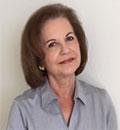
Back in 2011, California's Republican Congressman Devin Nunes said about the now defunct California high speed rail project, "It is clear that high-speed rail is not about jobs. It is about corruption, public deception and bureaucratic experimentation.”
And it took nine years to kill the monster.
Is it any wonder people are wary of the All Aboard Florida Virgin Trains' U.S. Private Activity Bond requests totaling $2.7 billion after reporting 2018 losses of more than $117 million and lagging ridership figures? Every rail expert will tell you these projects always have major cost overruns and lengthy delays.
Already, All Aboard Florida has experienced both. They originally announced their route from Miami to Orlando would be up and running by 2015 and the cost would be well below $2 Billion. With lingering unknown costs including the land and development expenses for the new double-track stretch from Cocoa Beach to the Orlando Airport and the possibility of new regulations for their higher -speed trains, who really knows when and how much?
The deception and experimentation are both true for the so-called private speed train project. For years, the Florida Department of Transportation told Treasure Coast residents the Federal Railroad Administration was the governing authority for safety requirements. Last winter, the FRA admitted Florida state statute gives FDOT that authority. As for experimentation, no rail system in the world combines trains going 110 mph on the same tracks as freight trains carrying hazardous materials.
The Virgin Trains US' 32 higher-speed trains per day will cross over 340 streets at grade through four counties without stopping; this, too, is experimental. What makes it even more experimental is the fact that a recent study by the Florida legislature’s Office of Public Policy and Government Accountability revealed FDOT has no regulations governing trains going 80–125 mph. With 17 people already dead on the system’s segment where trains reach a maximum speed of 79 mph, FDOT’s negligence is alarming.
Virgin Trains US has grand plans to build higher-speed rail throughout the state and in other areas of the country. However, Randal O’Toole, author of "Romance of the Rails: Why the Passenger Trains We Love Are Not the Transportation We Need", cautions, “High-speed rail proposals are high-cost, high-risk megaprojects that promise little or no congestion relief, energy savings, or other environmental benefits. Taxpayers and politicians should be wary of any transportation projects that cannot be paid for out of user fees.”
For their business plan to work, Virgin projects it will attract 6.6 million riders once the leg to Orlando is complete. However, Amtrak’s Acela line operating between Boston, New York City and Washington, D.C., with twice as many miles of track and four times the number of stops, only garnered 3.4 million riders in 2017. With cheaper Tri-Rail competing for the Miami-to-West Palm market, and cars and planes competing for the longer route, O’Toole’s comment about user fees should raise some eyebrows.
Taxpayer dollars from local municipalities are already picking up part of the tab because they are required by ages-old crossing agreements with Florida East Coast Railway (now owned by Grupo Mexico) to cover the maintenance of new, expanded crossing equipment in perpetuity. They will incur other costs as the 120-plus crossing beds on the Treasure Coast are widened for a second or third rail and streets will need to be retrofitted for the expansion.
But the real question -- who picks up the tab if, like so many other passenger rail projects, Virgin Trains is not profitable? Of course, if Virgin Trains US fails, Grupo Mexico will walk away with new double freight capacity … and the passenger service? The experts and the experience show this is far from a sure deal.
The Florida Development Finance Corporation should consider the plight of all Florida taxpayers and not approve the next group of Private Activity Bonds until there is a clear indication that the system will be financially viable. We don’t need another California boondoggle on our hands.
Susan Mehiel is the coordinator and communications director for Florida Alliance for Safe Trains.


